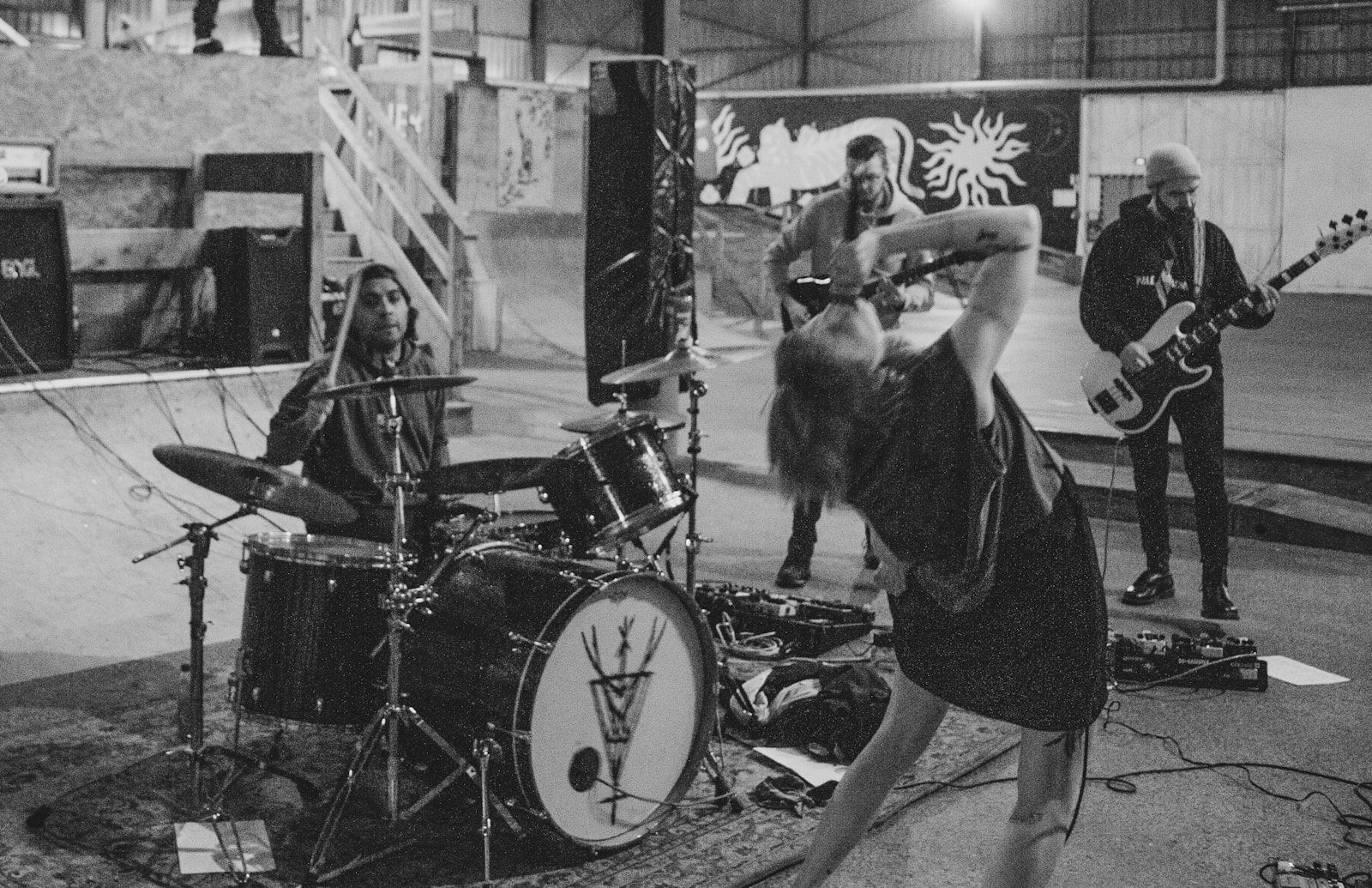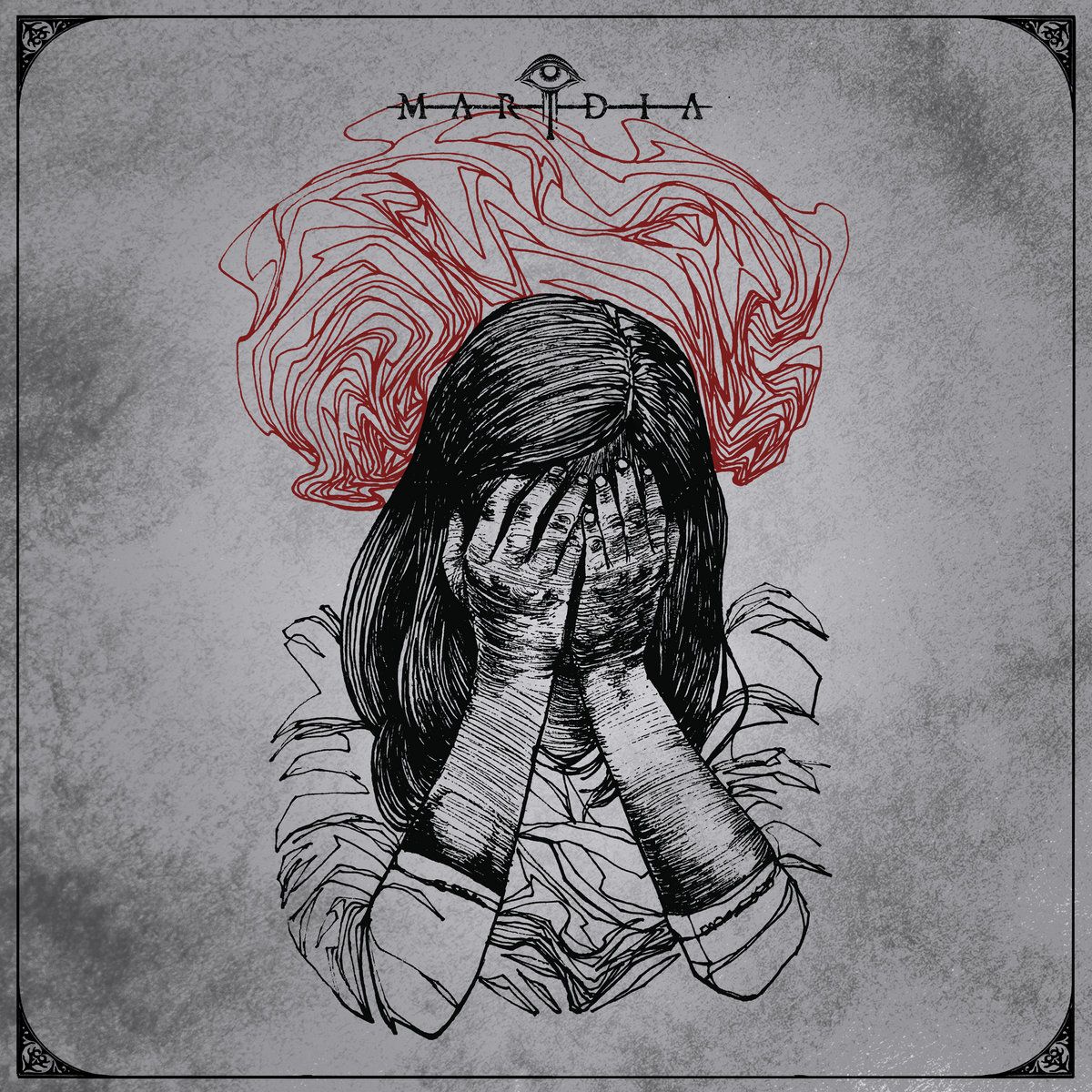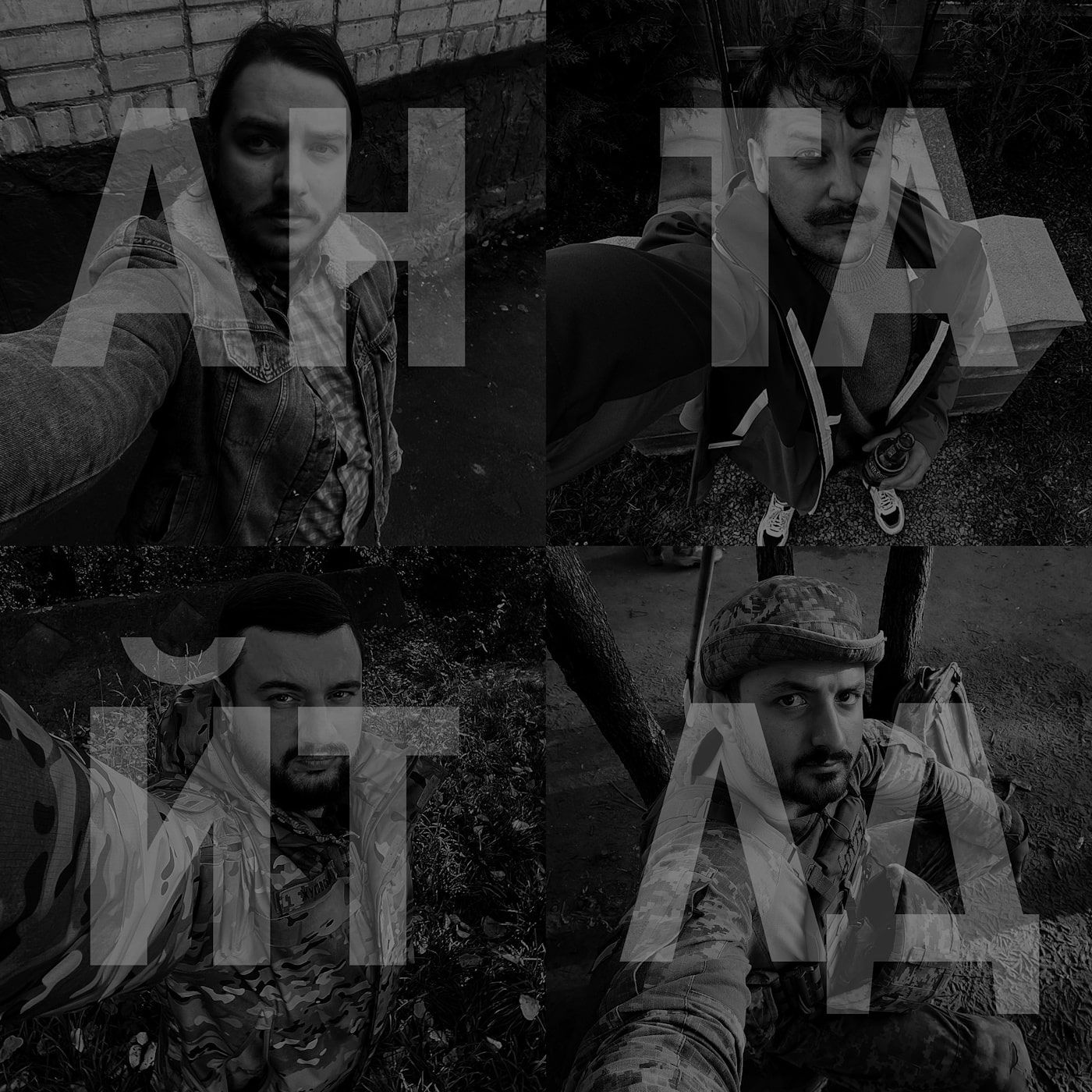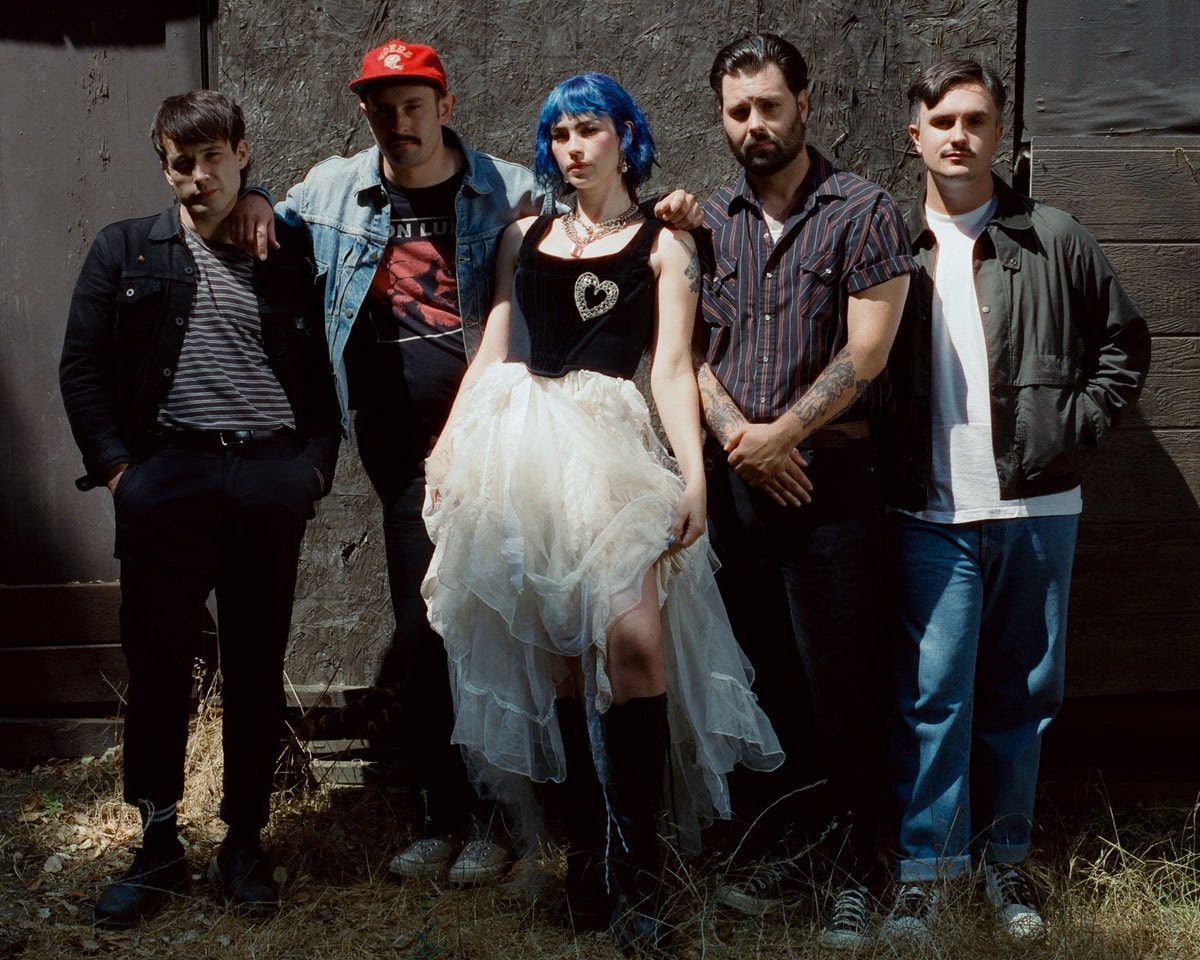Three months ago, we covered Maridia’s single I Am A Whisper, a stark meditation on isolation and human fragility. Now, the Stockholm-based grim post-hardcore band returns with Tumulus, a track that burns with raw grief and anger, rooted in vocalist Alex Campbell-Marshall’s response to the ongoing genocide in Gaza.
“This one wasn’t written—it unfolded,” Alex says. “During the first few months of online-witnessing what was happening, I was desperately writing at nights as a way to process.” The lyrics move between sorrow and indictment, refusing to let violence become just another historical footnote. Judgement was not yours to pass on the torn bodies of young angels—the track doesn’t offer comfort; it demands remembrance.
Musically, Tumulus is restless. There’s no easy repetition, no comfortable structure. “The skeleton of the song has a mix of fast/slow intervals, high/low energies, and heavy/light parts in a non-repetitive manner—mirroring how our hearts also cannot settle.”
This sense of instability reflects the lyrical content. Melodies emerge almost hesitantly, layered with what Alex describes as “fragile attempts of poetry.” The result is something that feels less like a song and more like an exorcism of helplessness.
Memory and accountability are central to the track. Bring a small stone as proof of what we saw. What worth is remembering at all? It’s not just about acknowledging history—it’s about questioning why acknowledging history hasn’t stopped the cycle of destruction.
“As if we could maintain a better world by only being nice, when there are untouchable powers that simply couldn’t care less.” The song is a reminder, a refusal to let atrocities dissolve into forgetfulness.
The cover art, created by Prakash from Förfallet, reflects this mood—his delicate line-work and emotionally charged style match Tumulus without being exploitative.
View this post on Instagram
“We were struggling to find something visual that would fit the song without being insensitive,” Alex explains. Prakash’s approach provided the balance they were looking for.
It captures the weight of mourning in stark, deliberate strokes. A figure, head in hands, dissolves into the raw outlines of grief—black ink pressed against a cold, grey backdrop, as if memory itself is eroding. The red swirls rising behind them pulse with unresolved anguish, something between smoke and screaming synapses. It’s not just sorrow, but the crushing knowledge of loss, a silent reckoning with what cannot be undone.
Maridia is still an underground act, but their impact extends beyond their reach. They recently wrapped up a short tour in France with Solitone and are eager to continue playing live.
“We really hope to get out to play more! So don’t hesitate to reach out to us, wherever in the world you might be organizing shows.” In the meantime, they are writing and recording, with new material on the way—delivered piece by piece, rather than in a single release. “It’s more fun for the ones who have been eager for more since our first record.”
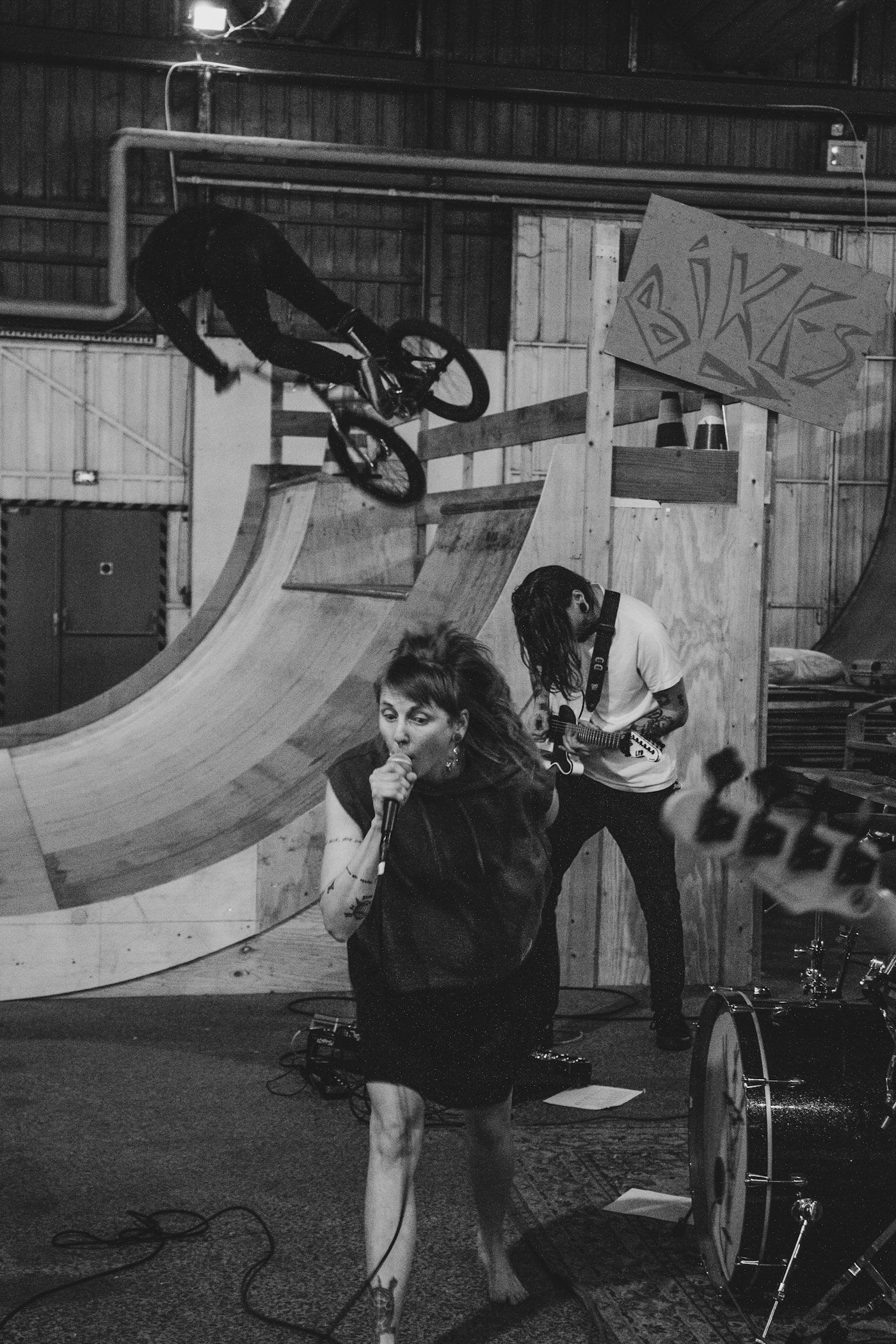
Beyond music, the band encourages direct action. “There are many ways to support people and organizations who support Palestinians directly. A few are The Addameer Prisoner support fund and Palestine Red Crescent Society.”
Tumulus isn’t about offering solutions. It’s about refusing to look away. About standing in the wreckage and demanding that loss be recognized—not as a distant tragedy, but as something real, something carried forward in every name remembered.



